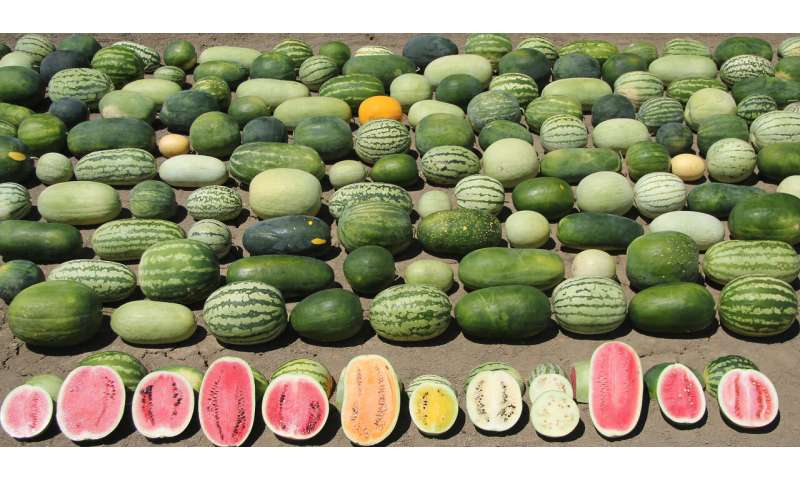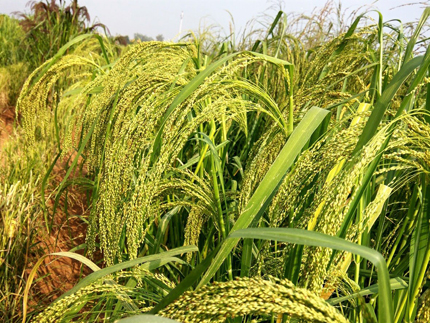
The Federal Ministry of Agriculture and Rural Development
(FMARD) has signed a Memorandum of Understanding (Mou) with the Sasakawa Africa
Association (SAASG2000) towards increased agricultural productivity. This was
contained in a press release issued by Ezeaja Ikemefuna on behalf of Director
of Information in the ministry.







 There are over 500,000 plant species in the world today. They all evolved from a common ancestor. How this leap in biodiversity happened is still unclear.
There are over 500,000 plant species in the world today. They all evolved from a common ancestor. How this leap in biodiversity happened is still unclear. 
 In the semi-arid tropics of Asia and Africa, conditions can be difficult for crops. Plants need to have short growing seasons, survive on poor soils and tolerate environmental stresses.
In the semi-arid tropics of Asia and Africa, conditions can be difficult for crops. Plants need to have short growing seasons, survive on poor soils and tolerate environmental stresses. Eagle talons are regarded as the first materials used to make jewellery by Neanderthals, a practice which spread around Southern Europe about 120,000 and 40,000 years ago.
Eagle talons are regarded as the first materials used to make jewellery by Neanderthals, a practice which spread around Southern Europe about 120,000 and 40,000 years ago.  In contrast to humans, plants cannot feel pain. However, so-called mechanical stimulation -- rain, wind and physical impact from humans and animals -- contributes to the activation of a plant's defence system at a biochemical level. This in turn triggers a stress hormone that, among other things, can lead to the strengthening of a plant's immune system.
In contrast to humans, plants cannot feel pain. However, so-called mechanical stimulation -- rain, wind and physical impact from humans and animals -- contributes to the activation of a plant's defence system at a biochemical level. This in turn triggers a stress hormone that, among other things, can lead to the strengthening of a plant's immune system. The intestinal microbiome is a delicate ecosystem made up of billions and billions of microorganisms, bacteria in particular, that support our immune system, protect us from viruses and pathogens, and help us absorb nutrients and produce energy.
The intestinal microbiome is a delicate ecosystem made up of billions and billions of microorganisms, bacteria in particular, that support our immune system, protect us from viruses and pathogens, and help us absorb nutrients and produce energy.
 Once dismissed as 'junk DNA' that served no purpose, a family of 'jumping genes' found in tomatoes has the potential to accelerate crop breeding for traits such as improved drought resistance.
Once dismissed as 'junk DNA' that served no purpose, a family of 'jumping genes' found in tomatoes has the potential to accelerate crop breeding for traits such as improved drought resistance.